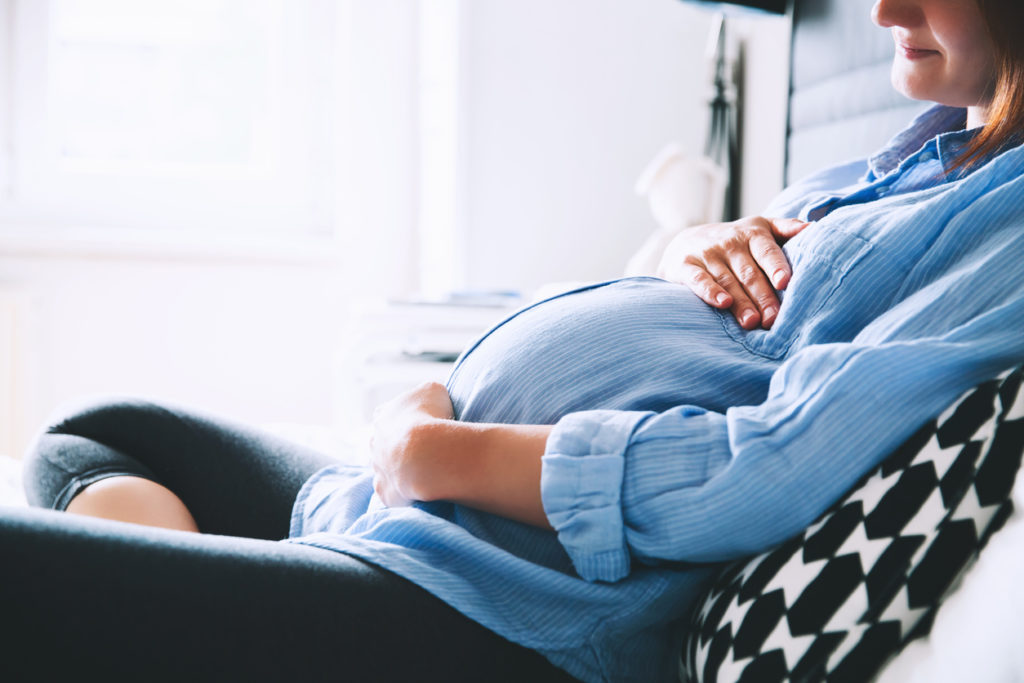Categories
Your body after the birth - Explained!
Feb 16, 2021
After
pregnancy, your body can go through as many changes as it went through
during the pregnancy. Some of those changes can be permanent while some
might take a considerable amount of time to heal. Whatever postpartum
changes you go through, never shy away from asking any questions about
your body changes to your doctor or midwife. You can visit Rosewalk
Hospitals, offering premium birthing in Delhi, and discuss body changes
after birth in detail. Not all mothers experience these changes but here
are some common body changes:
Mental Health:
Due
to the hormonal changes, it is normal to feel emotional after birth.
You may experience baby blues. They start a week after birth and end
when the baby is around ten days old. You may also feel easily
irritable, overwhelmed, or crying for no reason. Do not hesitate to
reach out to your doctor and loved ones for help.
Sex Drive:
New
mothers often undergo a fall in their sex drive. With taking care of
the baby, your healing body, and your family, women seldom have time to
think about their sexual needs. Estrogen levels rise during pregnancy
and fall after birth; this lowers the sex drive. However, they do shoot
up over time.
There
is no guidebook for when you should start having sex but if you feel
tired and sore, do not push yourself. However, if your partner has
different levels of sexual desire, this can add some stress to your
relationship. Whatever is the case, communicating about it can help.
Talk to your doctor about any specific concerns.
Bleeding:
Women
endure heavy vaginal bleeding post-birth. This will continue for a few
weeks and stop on its own gradually. Doctors recommend using sanitary
pads for the time being and not any other feminine hygiene products as
they can increase the chances of an infection. If your blood consists of
larger clots than usual, consult your doctor.
Stitches
If
you underwent episiotomy, a slight surgical cut to make the opening of
the vagina wider, in a normal delivery labour room, you might have
stitches. In the majority of the cases, these stitches disappear as the
cut heals but a few cases require having them taken out. Doctors
recommend bathing daily to avoid any infection. You should consult your
doctor if you feel uneasiness or soreness in these stitches.
First Milk:
Shortly
after birth, a new mother’s breast produces Colostrum. It is a yellow
fluid-like concentrated food for your newborn. After 3-4 days, new
mothers often notice their breasts feeling comparatively fuller. This is
because they have started producing milk and are ready to feed. The
amount of milk a mother produces depends upon the baby’s requirements.
Your body takes a few days to strike an equilibrium between your baby’s
needs and your milk production. If your breast feels too engorged and
painful, try taking warm baths and feeding the baby more often.
Hair Loss:
The
increased amounts of hormones released during pregnancy can make your
skin glowing and your hair shining. After birth, your hair goes back to
being its old self, which can make one think they are losing hair.
Hormonal changes, such as high estrogen levels during pregnancy keep
your hair from falling at its normal frequency.
New mothers shed more hair during the 3-4 months post-delivery, but it all goes back to being normal within 6-12 months.
Going to the Toilet:
The
first time you pee after birth can be a sore experience as it feels
slightly stingy. If you are not able to pee, try taking a warm bath. If
you smell a weird odour or if there is little too much pain in or around
your vagina, tell this to your doctor.
Getting
constipated is also common after birth but it isn’t as hassle-free. To
avoid this condition, drink 6-8 glasses of water per day and incorporate
lots of veggies and fruits into your diet. If you still get
constipation, laxatives might help.
Post-Pregnancy Belly:
Unlike
celebrity mums who claim to have ‘got their body back,’ your belly does
not go back that fast. After birth, the uterus takes 6-8 weeks to
return to its size before the pregnancy. Only exercise and a healthy
diet are a great way to get your body in shape. Note that consulting
your doctors about the former is highly recommended. Core exercises
focusing on the belly help greatly, but your genetics play a huge role
as well.
Your perception of your body:
Given
how much we worship the societal standards of a ‘perfect body,’ many
women develop negative feelings about their post-birth physique. The
pressure to look like you never had a baby is real but the fact that
everyone’s body is different is just as real. Whether had a vaginal or
cesarean delivery, the body heals at a different rate and responds
differently to various exercises or activities. Every new mother has a
different lifestyle. Some have people with them who can offer support,
some don’t. Some have too many responsibilities, some don’t. Thus, a
comparison is not the key.
As
this is the time of your healing, you should focus on your physical and
mental health and not on your appearance. Meditation coupled with
gentle exercises such as walking and stretching (not the rigorous
stretches) can be a good start.







